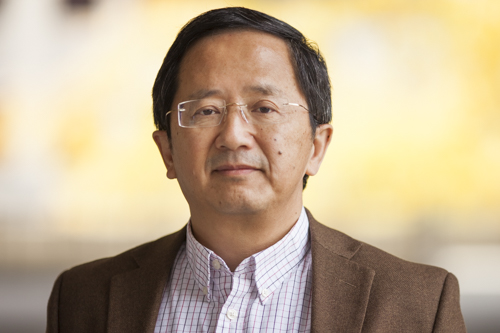Zhongdang Pan
Communication Science
Professor
he/him/his
608-263-3920
6138 Vilas Hall

Office Hours:
- Tuesday 9:30-10:30 AM
- Thursday 9:30-10:30 AM
Current and Future Projects
- Individuals’ vulnerability to and vigilance against misinformation on social media.
- A meta-analysis of the selective exposure research.
- Changing journalism and its epistemic authority.
Expertise and Activities
Before joining the faculty of this department, I spent five years teaching in Hong Kong and conducting research on media and social changes in the People’s Republic of China. Right now, I’m analyzing data from two of the projects I conducted while in Hong Kong. One project is a comparative study of journalists in the PRC, Taiwan, and Hong Kong and the other is a study of leisure participation and civic activities and values among the residents in three major Chinese cities. I’m also continuing my collaboration with scholars in the PRC to study the media reforms there. I recently completed surveys of journalists in two Chinese cities and am analyzing the data. My research interests have been on media effects in the process broadly referred to as public deliberation. That means I pay attention to various aspects of civic culture and public discourse, which may get manifested differently in different societies. Therefore, my research in China and in the U.S. deals with different issues. In addition to continuing my research on China, I’m also working on projects concerning civic participation, framing, and perceptions of media effects.
Education
- Ph.D. Mass communication, University of Wisconsin-Madison, 1990
- M.A. Communication, Stanford University, 1985
- B.A. Journalism, Beijing Broadcasting Institute, Beijing, PRC, 1982
Honors/Awards
- Vilas Associate, 2002
Articles
- 2008. “Understanding the third-person perception: Evidence from a meta-analysis.” Journal of Communication, 58, 280-300.
- 2006. “Mobilizing political talk in a presidential campaign: An examination of campaign effects in a deliberative framework.” Communication Research, 33, 315-345.
- 2004. “Spreading the global consumerism: Effects of mass media and advertising on consumerist values in China.” Mass Communication and Society, 7, 491-515.
- 2003. “Shifting journalistic paradigms: How China’s journalists assess media exemplars.” Communication Research, 30, 649-682.
Books
- 2002. Global media spectacle: News war over Hong Kong. Albany: State University of New York Press.
Chapters
- 2008. “Journalism research in Greater China: Its communities, approaches, and themes.” Journalism Research in an era of globalization, Weaver & M. Löffelholz London: Blackwell Publishing, 197-210.
- 2005. “Framing and the understanding of citizenship.” The evolution of key mass communication concepts, Dunwoody, L. B. Becker, G. M. Kosicki, D. McLeod Cresskill, NJ: Hampton Press, 167-207.
- 2003. “Localizing professionalism: Discursive practices in China’s media reforms.” Chinese media, global context, C. Lee London:Routledge, 215-236.
- 2001. “Framing as a strategic action in public deliberation.” Framing public life: Perspectives on media and our understanding of the social world, D. Reese, O. Gandy and A. Grant Mahwah, NJ: Lawrence Erlbaum, 35-66.
- 2000. “Improvising reform activities: Interpreting China’s journalism reforms.” Power, money, and media: Communication patterns in Cultural China, Chin-Chuan Lee Evanston: Northwestern University Press, 68-111.
Courses
- CA 560 – (Advances in) Communication Theory
- CA 525 – Media, Public Deliberation, and Public Issues
- CA 325 – Mass Media and Human Behavior
- CA 970 – Communication Science Seminar: Framing and Democratic Deliberation
- CA 762 – Communication Research Methods